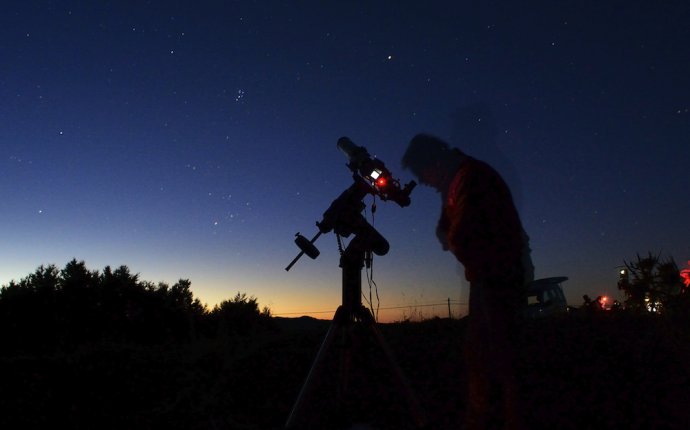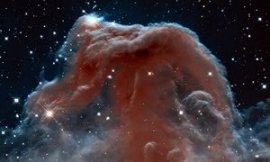
Being an astronomer
 A telescopic image of part of the sky in the constellation of Orion. Photograph: Ho/AFP/Getty Images
A telescopic image of part of the sky in the constellation of Orion. Photograph: Ho/AFP/Getty Images
Karen Masters is a British astronomer working at the Institute of Cosmology and Gravitation, University of Portsmouth, UK. She is the project scientist for Galaxy Zoo, an online scheme which invites the public to help researchers classify how galaxies have formed across the universe.
I have been interested in astronomy ever since I was a child. I kept a scrapbook of astronomy articles in newspapers and wrote to Nasa when I was 13 asking how I could become an astronomer. Throughout my childhood I studied galaxies – they're really quite beautiful, sparkly and visually appealing. I love the way in astronomy you can explain the structures you see through a telescope.
I still have that feeling of awe and wonder when I think about astronomy. Applying physics and science to the whole universe is amazing, and it came naturally to me. Nowadays, I love giving public talks about what I do and visiting schools. It's a very creative discipline and I like to share my interest in science to inspire others.
Part of my job is to observe the stars. I go to telescopes, and collect data on the stars. Telescopes nowadays are so enormous, and rather oversubscribed, so my visits usually only last a few days. However, all of the data I use come from a telescope.
In astronomy there are the usual pressures of higher education, but I still love what I do. You'd expect stress to come from the subject, considering you're simply sitting around thinking about how vast the universe is, however the main pressure is the fight for funding. Though I couldn't imagine doing it another way. Working hours are also long and deadlines are quite soft.
There is a strong history of women involved in astronomy, which helped ignite my passion. I read about these female scientists when I was little, and it must have had an affect. Caroline Herschel, for example, was the first woman to discover a comet and be paid for her contribution to science. Likewise, the most influential PhD study on astronomy – which found most of the universe is made up of hydrogen – was made by Cecilia Payne-Gaposhkin.
The stereotype of a scientist needs to be broken before we can encourage more girls into science. We need to talk more about different types of people – scientists can be teachers, adventurers, computer programmers. It's not just one type of person that does well in science, there's a whole host of ways to excel in different scientific areas. We need to try and get away from a stereotypical picture of a scientist as a man in a labcoat. People also often forget about the role of communication skills in science. But science would never progress without collaboration in an academic setting. Scientists are always working together; in fact a lot of my day is taken up by meetings.
You need to complete a PhD if you want to become an astronomer. The majority of astronomers do their first degree in physics (although it can be another science or maths). Astronomers will then do a PhD programme, which every big university has a department for. PhDs in science subjects are usually funded in the UK, including fees and living costs, and there are about 150 astronomy PhDs a year. Astronomy is a field where doing one or two fixed term positions after your PhD is required to get a permanent job. It also may require you to move across the world – I worked as a post-doc in the US before returning to the UK to work in Portsmouth. You won't necessarily work in a university – big science facilities also hire astronomers.
Being good at programming is also incredibly important nowadays. Soft skills like communication will definitely help you convey to others your passion for what you do. Likewise, taking many fixed-term contracts requires you to have perseverance. Overall it's a very rewarding job. It's a competitive field, and I feel very lucky to have reached my dream. As my thesis professor once told me: "You won't become a professional astronomer unless you really love astronomy." And I certainly do.
This content is brought to you by Guardian Professional. To get more content and advice like this direct to your inbox, sign up for our weekly update and careers ebook











